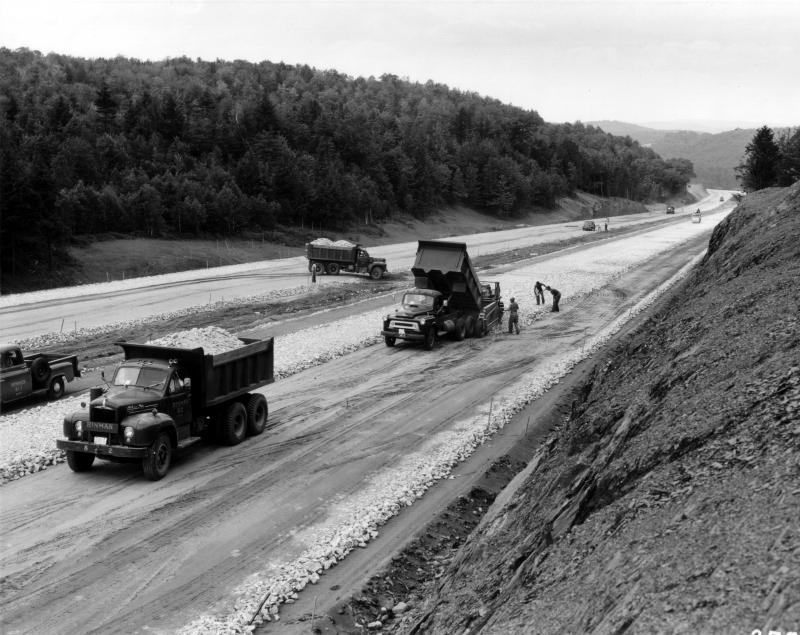Interstate 91 Changed the Valley Like Nothing Else Ever Has

In 1919, after World War I, the army wanted to test out its fleet of vehicles to see what they needed to improve. They created a three-mile long caravan of trucks, jeeps and soldiers, plus a marching band, and set off across the US. The roads were ridiculously bed, and on one day they collapsed 41 bridges trying to drive over them.
Thankfully there was one young officer along the trip who would remember how bad the roads were, and he became President Dwight Eisenhower. Ike soon launched what would become the biggest civic construction project ever undertaken in history, costing upwards of $13o billion and changing our country forever.
We learned about the advent of the Interstate highway system tonight at a riveting lecture by Barry Deitz, a North Carolina transplant who has researched the question of what happens when a highway is built through your town.
Though Deitz has been a radio talk show host, host of a movie review show, and acted in theater, he said he prefers to be called simply a storyteller. His clear emphatic voice, with the southern accent, is made for telling long stories. The crowd was mostly an older one, mostly people who lived here in the Valley before 91 was built. It was completed in the early 1970s.
Deitz now lives in Bernardston, and moved here about a year ago. He said he marveled at how rural the side of our interstate is–where he grew up, it’s all built up all along I-95, and our 91 veers through cow pastures, farm fields and tobacco barns.
His talk focused on the building of the Interstates beginning in 1956, specifically when the road came through Deerfield, Greenfield and Bernardston. Famed headmaster Frank Boyden is famous for his phone call that supposedly changed the route of the highway so that historic Deerfield could be preserved. Many beautiful sections of our towns were destroyed to make way for the road, since each mile required around 30 acres of land to be taken. Hundreds of houses were moved, and rivers were re-routed to make way for progress.
